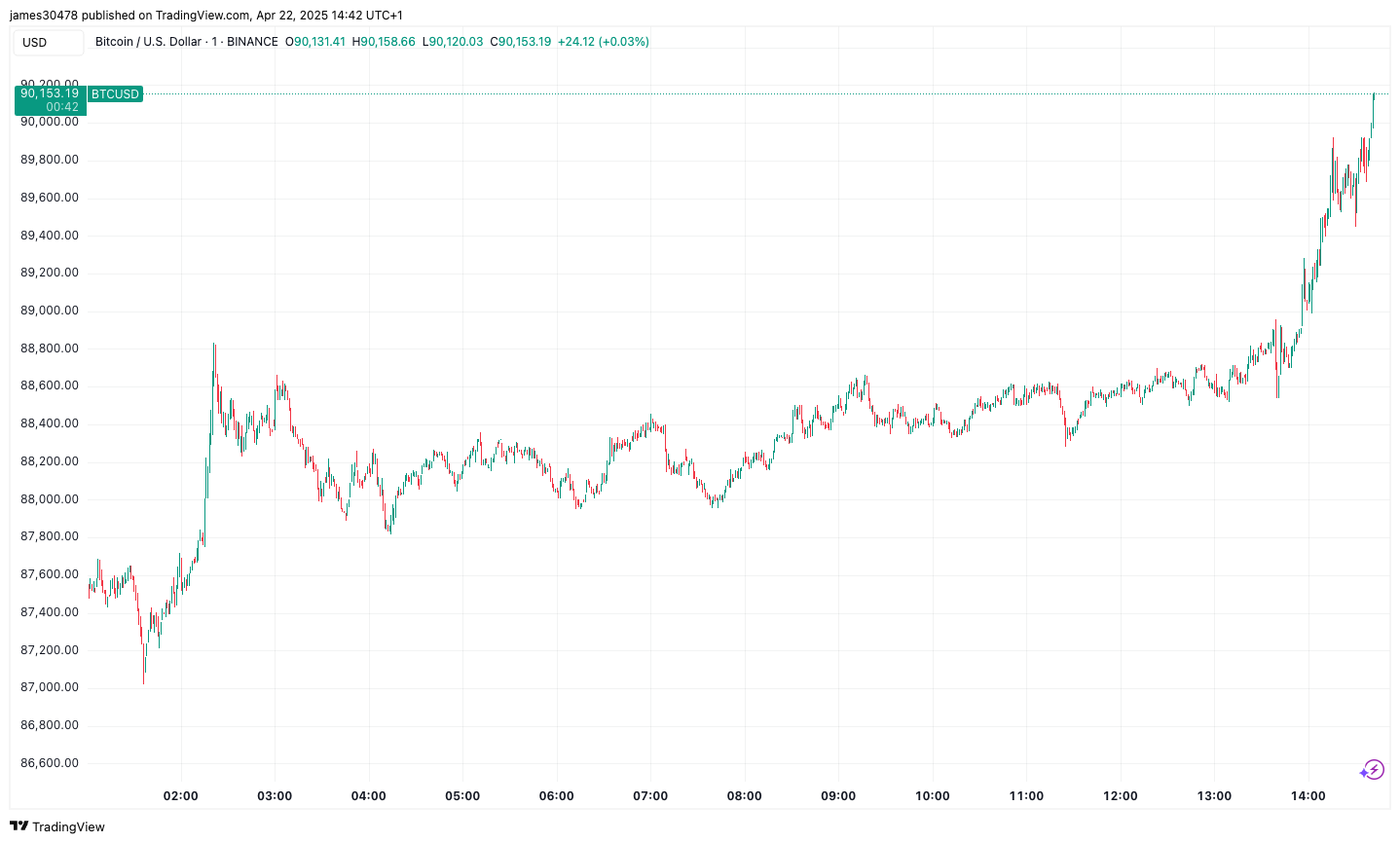Bitcoin and Ethereum Stuck in Range, DOGE and XRP Gain
April 25, 2025

1. Introduction
Solo miners refer to individuals who mine cryptocurrencies on their own, without joining a mining pool.
2. Importance
Solo mining allows individuals to have full control over their mining operations, without having to share rewards with other miners. It also helps decentralize the network by reducing the power of large mining pools.
3. Technical Background
Solo mining requires significant computational power and resources to compete with mining pools. It involves solving complex mathematical problems to validate transactions and secure the network. The process can be time-consuming and may not always be profitable for individual miners.
4. Usage
To analyze solo miners in the cryptocurrency industry, one can look at their mining power, hash rate, and potential rewards compared to mining pool options. For trading purposes, understanding the impact of solo miners on network security and decentralization can be crucial for making informed investment decisions.
5. Risk Warning
Solo mining comes with the risk of lower and less consistent rewards compared to joining mining pools. It also requires a deep understanding of mining hardware, software, and network protocols, which can be challenging for beginners. Additionally, fluctuations in cryptocurrency prices and network difficulty levels can impact the profitability of solo mining operations.
6. Conclusion
While solo mining offers independence and control over mining operations, it is important for individuals to consider the risks and technical requirements before engaging in this practice. Further research and staying informed about market trends can help solo miners make informed decisions in the ever-evolving cryptocurrency industry.
1. Can solo miners compete with mining pools?
Yes, solo miners can still compete with mining pools, but their chances of successfully mining a block are lower due to the decreased hash power.
2. How do solo miners receive rewards?
Solo miners receive the full block reward if they successfully mine a block. However, it may take longer for solo miners to find a block compared to mining pools.
3. What equipment is needed for solo mining?
Solo miners need a powerful computer with specialized mining hardware, such as ASICs or GPUs, to compete effectively in the mining process.
4. What are the advantages of solo mining?
Solo mining allows miners to receive the full block reward without sharing it with others. It also provides more control over the mining process.
5. Are there any risks associated with solo mining?
Solo mining has a higher variance in rewards compared to mining pools, meaning miners may experience longer periods without rewards. Additionally, solo miners face increased competition from mining pools.
User Comments
1. “Solo miners must have nerves of steel to go it alone in the competitive world of cryptocurrency.”
2. “I admire solo miners for their dedication and determination to succeed without relying on a team.”
3. “Solo miners are the true pioneers of the blockchain, proving that one person can make a big impact.”
4. “I’ve heard solo miners can hit the jackpot with a big find, but the risks seem too high for me.”
5. “Solo miners are like modern-day prospectors, searching for digital gold in the vast wilderness of the internet.”
Another solo Bitcoin miner defied the odds last week, processing a block and bagging a 3.125 BTC reward. At the ...
Read more© 2025 Btc04.com